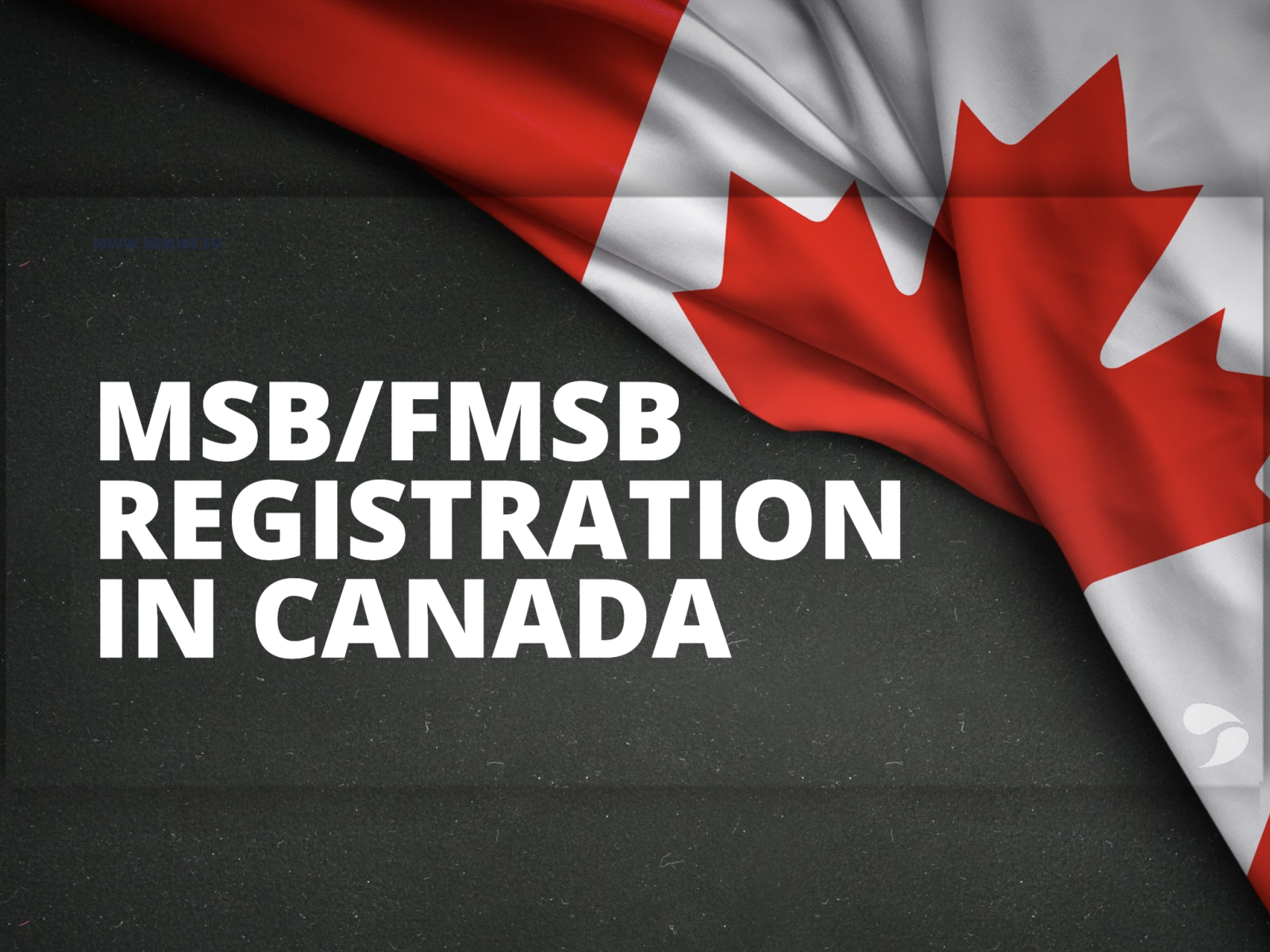Expanding Financial Operations with MSB and fMSB Registration in Canada
2025 02 11In the financial world, regulatory compliance is often the key to unlocking growth and market access. For businesses involved in currency exchange, remittance, crypto services, and payment processing, obtaining a Money Services Business (MSB) or foreign MSB (fMSB) registration in Canada is a critical step to legally operate and expand internationally. This article explains the registration process, the differences between MSB and fMSB, and how businesses can benefit from this registration.
Understanding MSB and fMSB Registration
The Money Services Business (MSB) registration is a regulatory requirement under Canada’s FINTRAC (Financial Transactions and Reports Analysis Centre of Canada). It ensures that financial businesses comply with anti-money laundering (AML) and counter-terrorism financing (CFT) regulations. Whether you’re setting up a physical operation in Canada or providing cross-border services, registration with FINTRAC is essential.
MSB vs. fMSB: What’s the Difference?
• MSB Registration: This is required for businesses with a physical presence in Canada. Having a local office or a representative on-site during normal business hours is often expected by financial institutions and regulators.• fMSB Registration: Foreign businesses that want to offer financial services in Canada without a physical office can register as an fMSB. This option is ideal for companies seeking to target Canadian clients from abroad while remaining compliant.
The choice between MSB and fMSB largely depends on your business model and whether you plan to establish a presence within Canada or operate internationally.
Key Benefits of MSB/fMSB Registration
The MSB/fMSB Registration Process
The registration process is divided into key phases, each of which is necessary for businesses to meet FINTRAC’s requirements:
1. Document Collection:
Businesses must prepare a detailed business plan, organizational structure, and responses to FINTRAC’s questionnaires.AML/KYC policies and a comprehensive risk assessment are also required to demonstrate compliance with Canada’s financial crime prevention regulations.
2. Company Formation (For MSB Registration):
Businesses intending to register as an MSB must form a local entity, such as a corporation.3. AML Policy Development:
Anti-Money Laundering (AML) policies must be tailored to meet Canadian standards, including risk-based monitoring and reporting mechanisms.4. Pre-Registration Submission to FINTRAC:
Businesses must submit initial documents and complete a pre-registration review.5. Final Registration Submission:
Following feedback from FINTRAC, businesses finalize their registration documents and submit them for approval.6. Approval & Follow-Up:
FINTRAC reviews the application, which may involve clarifying questions or interviews. Upon approval, the business is officially registered as an MSB or fMSB.7. Bank Account Setup (Optional):
For businesses seeking banking services, having AML-compliant documentation often expedites the account opening process.Common Services Offered Under MSB/fMSB Registration
An MSB or fMSB registration provides businesses with the legal framework to offer the following services:
Businesses can combine these services to create diversified financial offerings that cater to global markets.
Challenges and Compliance Considerations
While registration opens opportunities, businesses must maintain ongoing compliance to avoid fines and penalties. Common compliance challenges include:
Maintaining compliance is critical, as failure to do so can result in fines, suspension, or cancellation of the MSB/fMSB registration.
Conclusion
For businesses looking to expand their financial services globally, obtaining an MSB or fMSB registration in Canada is a crucial step. It not only ensures regulatory compliance but also provides access to multi-currency banking and international markets. With a clear understanding of the process and compliance requirements, businesses can unlock growth opportunities and establish themselves as trusted players in the financial sector.
For expert assistance with your registration, Demire Inc offers comprehensive support, from document preparation to regulatory guidance. Contact us to learn more about how we can help streamline your registration and compliance journey.
FAQ: MSB/fMSB Registration in Canada
1. How long does it take to complete the registration process?
The process typically takes 3-4 months. However, additional time may be needed for bank account setup and other post-registration activities.
2. Can I operate internationally with an MSB registration?
Yes. Canadian regulations allow MSBs to service international clients. However, businesses must comply with local regulations in each target country.
3. Is physical presence required for MSB registration?
Yes, MSBs require a local office or representative in Canada. fMSBs, on the other hand, do not require physical presence.
4. What are the key compliance requirements after registration?
5. Can I provide crypto services with an MSB registration?
Yes, you can offer crypto-related services like OTC trading and payment processing. However, additional registrations may be required if your business involves custodial services or less-established crypto assets.
6. What happens if my MSB registration expires?
If your registration lapses, you must contact FINTRAC and may need to go through a renewal process.
7. What is the Retail Payment Activities Act, and does it apply to me?
Effective November 2024, this regulation will apply to certain payment service providers, remittance companies, and neobanks. Businesses must ensure compliance when the regulation takes effect.

